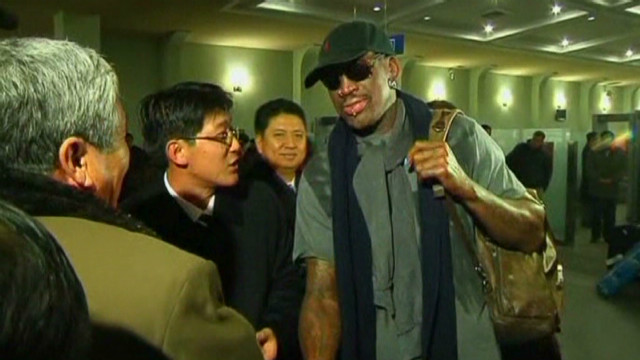Feed industry well presented at VIV Asia 2013
For professionals in the international feed industry, the upcoming VIV Asia, to be held 13-15 March, 2013 in Bangkok, Thailand, will be an event not to miss. The eleventh edition of the show presents a full range of exhibitors from the feed to meat chain and has a wide range of seminars and congresses to offer on topical feed processing and nutritional issues.
The 2011 edition of VIV Asia attracted a record number of almost 29,000 visitors.
Almost 600 exhibitors from 40 countries, filling six full halls of the Bangkok International Trade and Exhibition Centre (BITEC). Add to that about 25,000 expected visitors from the Middle East to Oceania and from India to Japan. These figures alone should convince you that VIV Asia 2013 has a good selection to offer, comprising global market leaders and regional as well as national Asian players of importance. With Aquatic Asia 2013 co-located with VIV Asia, professionals active in the production of pork, poultry meat, eggs, fish and dairy all have good reasons to meet up in Bangkok in March.
Where many international livestock shows these days go for more and bigger, VIV Asia deliberately chooses to keep the total surface of the show relatively concise, zooming in on quality rather than quantity. Events like the Rabobank conference and the Animal Health Summit (see opposite), designed for CEO-levels, testify this approach, explains Ruwan Berculo, project manager VIV, Asia-Pacifi c & Europe. “We want to stand out as the event where agricultural companies can present themselves in a business environment.”
CropTech-FeedTech Asia 2013
For the animal feed industry, the major feature jumping into view is the pavilion CropTech-FeedTech Asia 2013. The
pavilion is set up against developments of growing investments in Asia in technology and equipment for the milling, processing, storage and handling of raw materials to produce feed. The demand is driven by a rapidly growing population, the increased level of income and the focus on food safety. In particular China, Vietnam, India, and Indonesia propose many opportunities.
With almost 5,000 visitors dedicated to feed milling throughout Asia, Africa and the Middle East, the 2011 edition showed
that feed milling had developed itself into a strong segment on its own. All global market leaders have confirmed
their participation, many of them with significantly larger booths. The space allocated for CropTech-FeedTech Asia
2013 has been extended as a result. In addition to the CropTech-FeedTech pavilion at the exhibition, two feedrelated
conferences will be held:
• Digital engineering in the feed industry (March 13, 2 pm – 4 pm, focusing on engineers). Eight participants will give ten minute presentations as input for the closing debate.
• Nutrition, (March 14, 2 pm – 4 pm, focusing on nutritionists). International keynote presentations, with e.g. ‘The future of enzymes in poultry feed’ by Christos Antipatis, DSM and ‘The use of immunoglobulins in piglet feed’ by Thomas Heile, EW Nutrition.
General programme
The show’s opening ceremony will consist of five parts and will take place in the Grand Hall, second floor and starts at
10.30 am on March 13th. On March 14th, the conference ‘Developments in the animal protein sector: A multi-species approach’.
This CEO-level conference, starting at 10.30 am, presents developments in feed manufacturing, poultry breeding, pig breeding and aquaculture. On the very same day, another option is to visit the Animal Health Summit Asia. This two-tier event focuses on the reduction of antibiotics in the livestock industry related to the current increase in antibiotic resistance, which has led to a worldwide discussion. The widespread occurrence of multiresistant bacteria is considered to be a threat for future human and animal health. The safety of meat and eggs and the discussion on how to deal with this worldwide problem in the Asian markets is the theme of this summit.
From 10.30 am until 1.30 pm, several seminars with speakers from different exhibitors will present their vision and related solutions on reducing antibiotics in livestock production tomorrow. Shortly after the morning session, a two
hour CEO-level conference runs from 2-4 pm. Four international keynote speakers present the global context as well as specific best practices related to the reduction of antibiotics in livestock production.
Aquatic Asia 2013
As Asia is the world’s market leader in aquaculture, everything benefiting the production of fish, molluscs, crustaceans and shrimp also receive a lot of attention at VIV Asia. Countries like China, India, Vietnam, Indonesia and Thailand rank high on the list of the largest producers. This is why joint organisers VNU Exhibitions Europe, VNU Exhibitions Asia and NEO present a new edition of this trade show for the Asia-Pacific Aquaculture business: Aquatic Asia 2013.
For other interesting events, please check the box ‘Events at VIV Asia’. AAF
Feed-related highlights at 11th VIV Asia
• Mycotoxins & Salmonella 2013: One day paid conference (Imperial Queens Park Hotel, Bangkok – Tuesday, March 12, 8 am – 4.15 pm)
• Exhibitor seminars: One-hour exhibitor presentations (BITEC, March 13-15, 10 am onwards)
• Country pavilions: Presenting exhibitors from feed to meat; Belgium, China, France, Israel, Korea, Spain, Thailand, the Netherlands, United Kingdom (BPA), USA (BITEC, all days)
• Indonesia partner country seminar: International investment opportunities in the Indonesian poultry industry (BITEC, Thursday, March 14, 10 am - noon)
• The Philippines partner country seminar: International investment opportunities in the Philippine livestock industry (BITEC, Thursday, March 14, 10.30 am – 12.30 pm)
• Dairy Production Conference: ‘Taking the Asian Dairy industry into the 22nd Century’ - International keynotes addressing visions and solutions for the Asian dairy industry in the fi eld of breeding, animal health and nutrition. (BITEC, Thursday, March 14, 2-4 pm)
• GlobalGAP: ‘Good Agricultural Practices’ (BITEC, Friday, March 15, 10.30-11.30 am)

 ) was held mid-cruise in Barcelona on May 12, with Cat Cora, the Food Network’s only female Iron Chef, as the godmother.
) was held mid-cruise in Barcelona on May 12, with Cat Cora, the Food Network’s only female Iron Chef, as the godmother.
